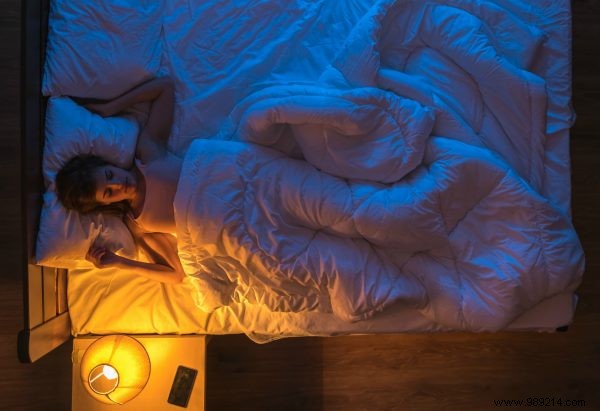
Spicy foods, caffeine, smoking and alcohol can promote night sweats. So be moderate with that or stop altogether. But there can also be other causes.
Certain medications have night sweats as a side effect. For example, medicines that lower fever, such as aspirin and paracetamol. But antidepressants, hormone therapy drugs and drugs to lower your blood sugar can also have this side effect. About 8 to 22 percent of people who take antidepressants suffer from night sweats.
Stopping medication is often not an option. However, it can sometimes help to switch to another medication. Discuss this with your doctor.
Read also: "Why do I sweat more than others?"
By sweating you get rid of excess heat and maintain your body temperature – for example during a warm summer night or if you use too thick bedding. If you do not lie under too thick blankets, but you often wake up damp or even soaking wet, you suffer from night sweats. The most common cause in women is a hormonal change.
Hormonal changes, such as during pregnancy and menopause, confuse the part of your brain that controls your temperature. This can give you hot flashes; not only during the day, but also at night. Prevention is not possible, but you can keep yourself as cool as possible so that they are more bearable. Put on a thin cotton nightgown and open the bedroom window.
When you are under stress and anxiety, your body produces adrenaline, among other things, so that your sweat glands automatically start working. Stress can also cause you to breathe more shallowly in your sleep, which ultimately also results in night sweats.
Try to find out what is causing your stress or anxiety. Perhaps it is easy to solve by talking to your employer, for example. Find ways to relax at the end of the day so that you go to bed stress-free. For example, take an online yoga class, purchase a coloring book for adults or do embroidery. Don't be afraid to ask for help if you can't figure it out yourself.
Infections that cause fever can also cause night sweats.
Usually it is a fairly harmless infection, such as the flu or a sinus infection. There could also be more to it, such as HIV infection, tuberculosis, malaria, cardiovascular disease, lung disease or even cancer. If you cannot find the cause of your night sweats, it is wise to visit your doctor.